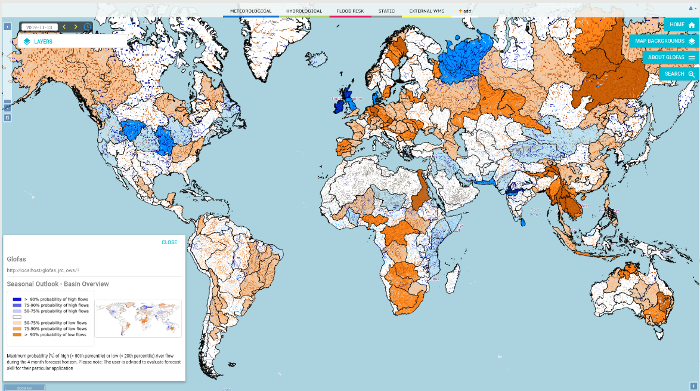GloFAS ‘Open Science and Research’ highlighted by University of Reading

The University of Reading is a GloFAS partner and collaborator, and has recently featured GloFAS-Seasonal as an Open Research Case Study, highlighting the benefit and impacts of open science and research.
The case study discusses Dr Rebecca Emerton’s PhD research with the Water@Reading research group at the University developing GloFAS’s seasonal outlook. Working closely with Ervin Zsoter and the GloFAS team at ECMWF and the JRC, the GloFAS seasonal forecasts were implemented operationally and released in November 2017.
The developers of GloFAS-Seasonal also published an open-access paper describing the development of the system and the new forecast layers available through GloFAS, alongside a first evaluation of the forecast skill. “We wanted to ensure the paper was freely available, as it provides information that is essential for decision-makers, many of whom may not have access to journal subscriptions”.
Discussing the benefits and challenges of open science in the context of implementing GloFAS-Seasonal, Dr Emerton said “There are challenges involved in providing access to huge volumes of data, and designing forecasts for a wide range of users with different levels of expertise in hydrological forecasting. But the uptake of GloFAS forecasts by its international users is in no small part the result of developing the service on an Open Research foundation.”
To find out more: https://www.reading.ac.uk/research/research-environment/open-research/open-research-case-studies.aspx
More information on GloFAS-Seasonal: http://www.globalfloods.eu/technical-information/glofas-seasonal/
To read the GloFAS-Seasonal publication: https://www.geosci-model-dev.net/11/3327/2018/gmd-11-3327-2018.pdf
GloFAS is funded through the European Commission's Copernicus Emergency Management Service (CEMS)
By Rebecca Emerton Nov. 13, 2019, 2:43 p.m.
